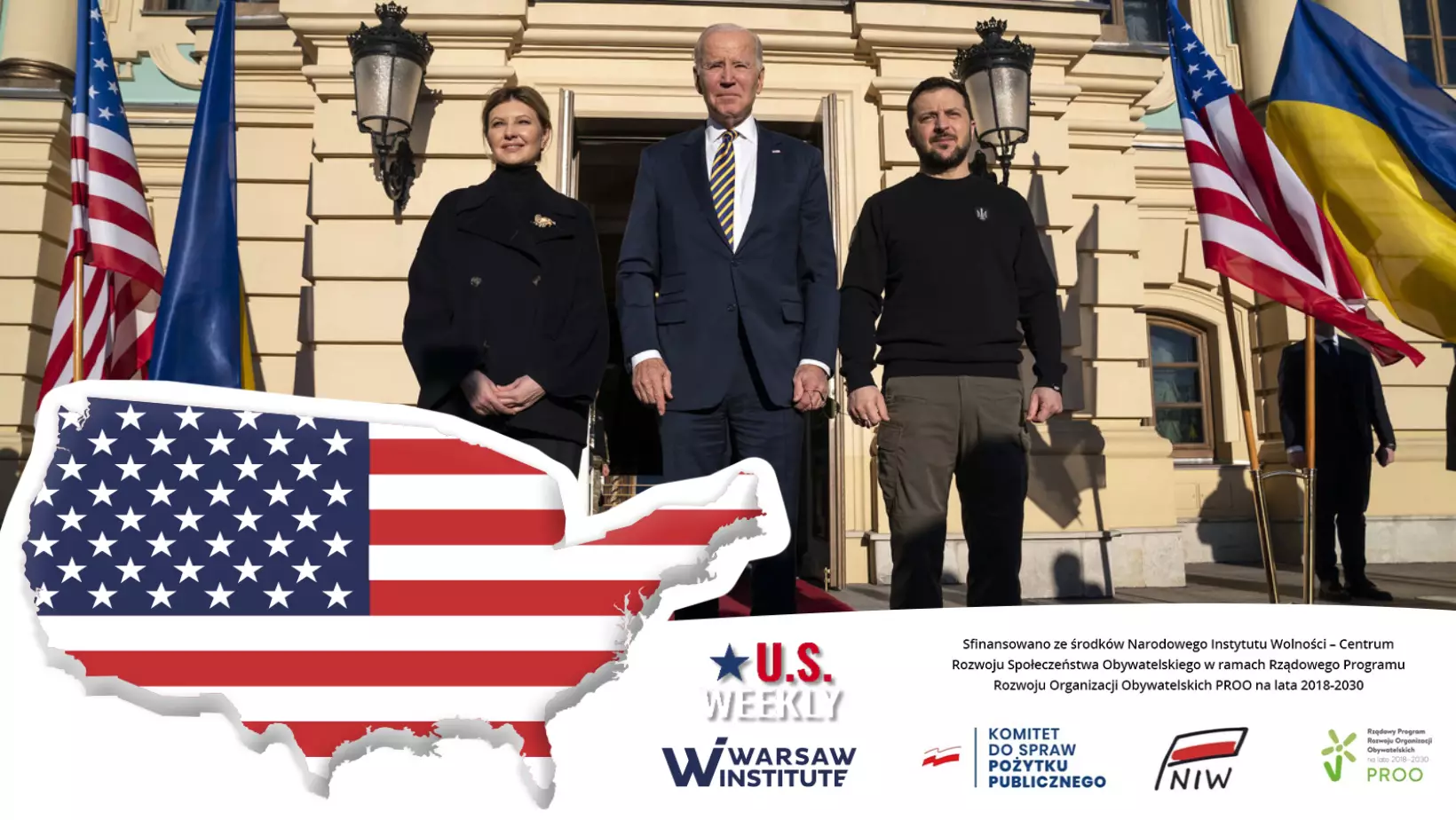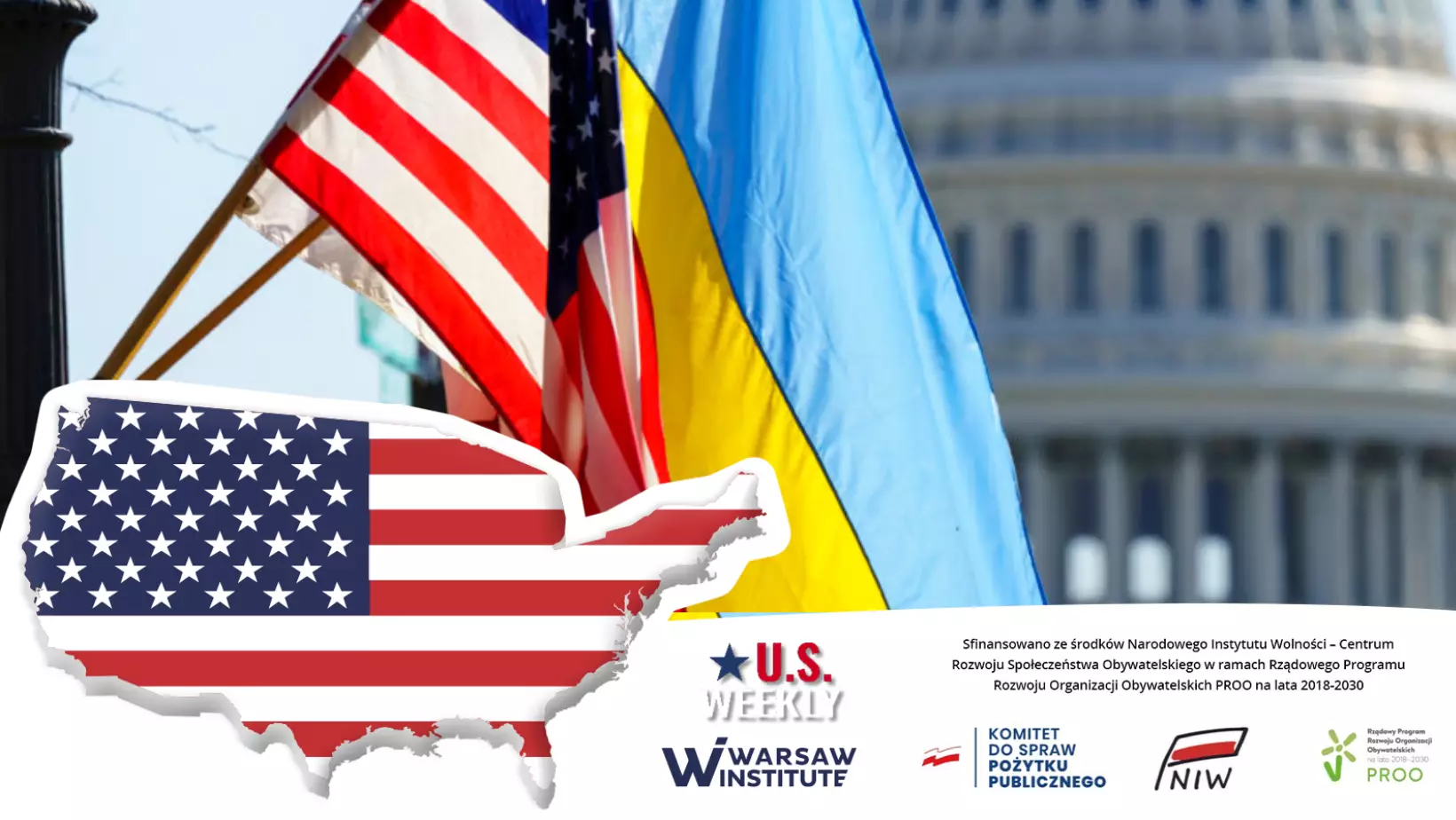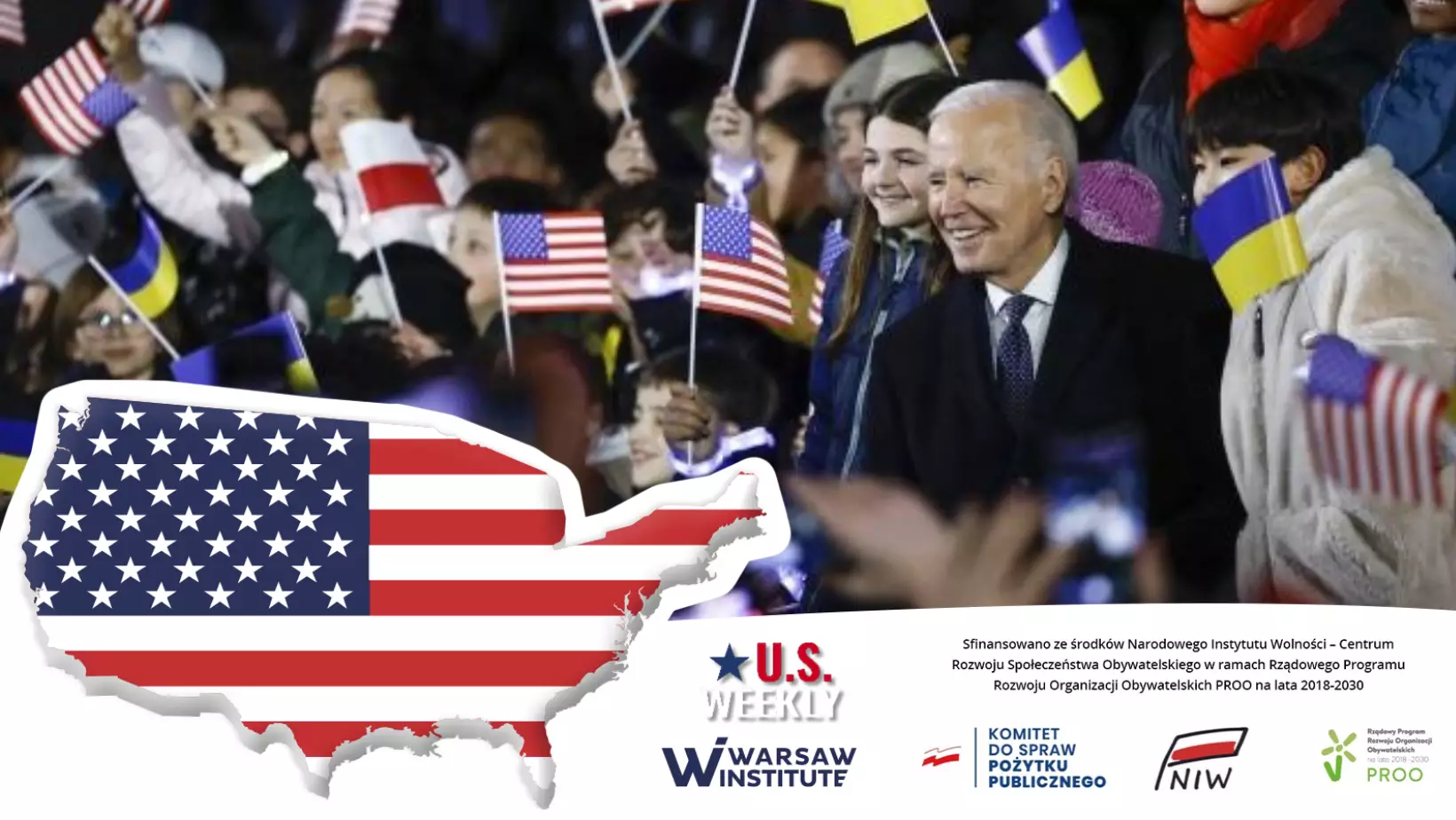
U.S. WEEKLY offers an in-depth analysis of various geopolitical processes that have direct effect on US’ domestic and foreign policies. This particular analytical column is possible thanks to the cooperation with polish media abroad: Dziennik Związkowy – Polish Daily News, Polishexpress of United Kingdom and WIrlandii.pl of Ireland
Date: 13 March 2023
One Year Later, U.S. Stands With Ukraine
Monday, February 20, 2023, the world was startled by the news of John Biden’s visit to Kyiv. Some experts described it as a surprise trip to the capital of embattled Ukraine. The visit had a highly symbolic significance emphasising Ukraine’s resistance to the world’s second army. Biden in Kyiv, commemorated the first anniversary of the full-scale Russian invasion of Ukraine and highlighted the role of the Central and Eastern European region.

“One year later, Kyiv stands,” Biden declared after meeting Zelenskyy at Mariinsky Palace. The declaration appreciates Ukraine’s efforts to defend its sovereignty against Russian aggression. At the same time, the significance of this symbolic visit successively underlines the Ukrainian detachment from the vision of the Russkiy Mir (Russian world).
Biden’s Visit to Ukraine Is the First by a Sitting U.S. President Since 2008. It’s worth noticing that 2008 heavily dominated Fukuyama’s paradigm of the end of history. Today’s reality leans towards a multipolar world with unstructured borders. In present-day Ukraine, the new battleground for the future shape of the new-powers sphere of influence is taking place. Observing this clash of superpowers, one can notice the use of different methods. For instance, Russia uses war cards to preserve the remnants of the old imperial influence zones.
After U. S. withdrawal from Afghanistan, characterising the beginning of Biden’s administration, another strong U. S. military aid effort seemed to be impossible. Despite this, after the Russian invasion of Ukraine in March 2022, 74% of American adults declared support for helping Ukraine. Recent polls show that support for military aid to Ukraine remains high at 51%. Additionally, 42% of Americans support the Biden administration’s response to Russia’s invasion of Ukraine. U. S. polls indicate strong interest in the ongoing conflict in Ukraine.
The significance of the Central and Eastern European region has grown by Biden’s omission, from his latest Euro-tour, the countries of the old European Union and the U. K., in which capitals such as Berlin, London and Paris mostly stood out. The recent precedent in Biden’s combined visit to Kyiv and Warsaw helps to establish the Central and Eastern European region in an equal political position with the Western part of the old continent.
Szymon Polewka is a student of international relations at the Jagiellonian University in Kraków, specializing in the history of international relations, the Eurasian region, DACHL countries, intercultural relations, and the energy sector. He is currently on a scholarship at the University of Bremen. He has gained experience organizing the 2020 Economic Forum in Karpacz and numerous youth and student associations, such as AIESEC or Koło Naukowe Wyzwań Zielonego Ładu.
Sources:
1. Dunn Amina, As Russian invasion nears one-year mark, partisans grow further apart on U.S. support for Ukraine, Pew Research Center, access March 03, 2023
https://www.pewresearch.org/fact-tank/2023/01/31/as-russian-invasion-nears-one-year-mark-partisans-grow-further-apart-on-u-s-support-for-ukraine/
2. Gramlich John, What public opinion surveys found in the first year of the war in Ukraine, Pew Research Center, access March 03, 2023
https://www.pewresearch.org/fact-tank/2023/02/23/what-public-opinion-surveys-found-in-the-first-year-of-the-war-in-ukraine/
3. Statement from President Joe Biden on Travel to Kyiv, Ukraine, The White House, access February 20, 2023
https://www.whitehouse.gov/briefing-room/statements-releases/2023/02/20/statement-from-president-joe-biden-on-travel-to-kyiv-ukraine/
Support Us
If content prepared by Warsaw Institute team is useful for you, please support our actions. Donations from private persons are necessary for the continuation of our mission.
All texts published by the Warsaw Institute Foundation may be disseminated on the condition that their origin is credited. Images may not be used without permission.

















